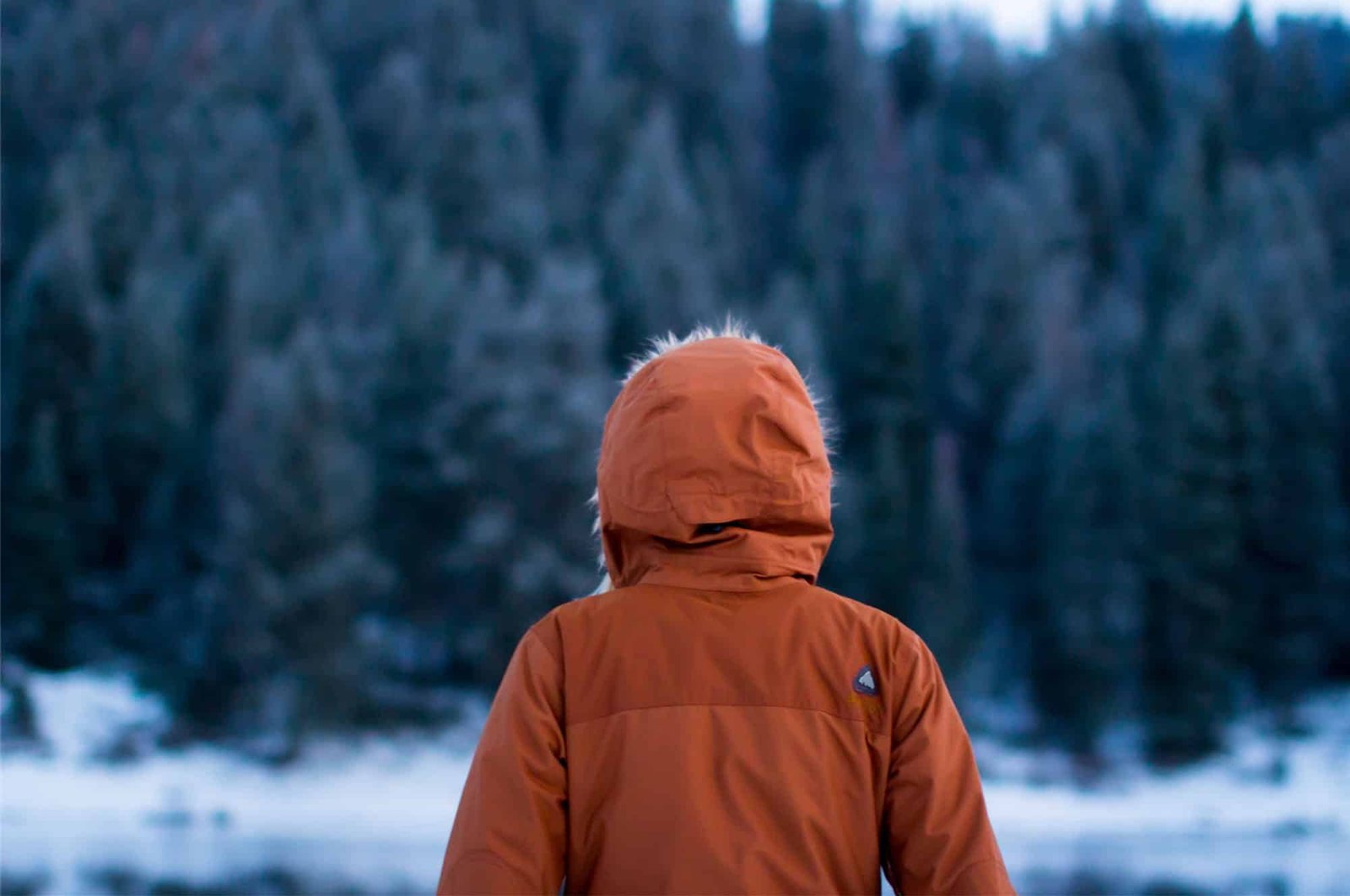In 2024, only 12% of hunters put ethical hunting first, a recent survey shows.1 But, this small group is starting a big change. They are pushing for eco-friendly and ethical ways to hunt. This trend is catching on fast among hunters in the US.1
The use of technology is also changing hunting in 2024. Hunters can now use high-tech sights, drones, and night vision. These tools make it easier to find and hunt animals.2 As a result, hunting trips are turning into chances to see and enjoy different ecosystems.2
Hunting in 2024 mixes old traditions with new, sustainable methods. Thanks to these, the sport is becoming greener and more thoughtful. As hunters adopt better practices, they are becoming key in saving our natural world.2
Key Takeaways
- The adoption of ethical hunting practices is on the rise, with a growing number of hunters prioritizing wildlife conservation and animal welfare.
- Technological advancements are significantly impacting the hunting experience, offering hunters new tools and opportunities to track and locate game.
- Ecotourism is transforming hunting trips into experiences that allow participants to connect with local ecosystems and appreciate the diversity of wildlife.
- Hunters are playing a crucial role in conservation efforts, using sustainable practices to manage wildlife populations and maintain ecosystem balance.
- The future of hunting in 2024 is characterized by a balance between technological innovation and the preservation of traditional values, with a strong emphasis on ethical and responsible practices.
Introduction to Ethical Hunting
Ethical hunting is key to keeping hunting traditions alive for future hunters. It means treating wildlife with respect and following clear rules. This protects the environment from harm.3 In North America, many support hunting, especially when it’s for food.3 Yet, most disapprove of hunting where the animal’s parts aren’t used.3 Being ethical in hunting includes these important points:
Fair Chase Principles
Hunters should aim to hunt in a fair and sportsman like way, known as “fair chase.”4 A skilled hunter should be able to make a clean shot and follow up if needed.4 If the hunter can’t find the animal after shooting, they must stop hunting that day.4
Respect for Wildlife
It’s vital that hunting shows respect for the animals and their homes.3 How this respect is shown can vary among hunters.3 Novice hunters should learn good hunting manners from those with experience, not just from the media.4
Compliance with Regulations
All hunters must follow the law.3 These rules help manage wildlife and can change over time.35 In Oregon, wasting game is against the law.5 There are limits on how many animals can be taken to ensure they thrive.5
By following these guidelines, hunters can make sure their hobby helps wildlife thrive and keeps the tradition of hunting strong.
Sustainable Hunting Practices
Sustainable hunting means keeping wildlife numbers in check to protect the habitats they live in.6 It ensures animals have a chance at survival for the long run.6 Hunting helps stop overpopulation and the harm it causes to nature. It’s the best way to care for game animals.
Habitat Conservation
Hunters are big helpers in keeping natural places thriving. They take part in planting trees and watching over local plants and animals.2 Their actions keep everything in its right place.2 Maintaining good habitats is key for keeping game animals around.6
Population Management
When hunting, it’s important to choose targets carefully.6 Culling, or picking out sick or weak animals to hunt, is critical.6 It helps keep animal communities strong and healthy.6 The goal is to only hunt what’s needed for a balanced and growing environment.
Support for Conservation Organizations
2 The money from selling bows, guns, and hunting gear goes towards saving animals. This happens thanks to the Pittman-Robertson Act. It’s a big help for nature.2 In places like the Midwest and South, hunting is tightly linked with looking after the land. Alex Robinson, who leads Outdoor Life, points this out. It shows a deep bond between hunting and helping wildlife in these parts.
Importance of Education and Advocacy
Education is key to ethical and sustainable hunting in 2024. Find A Hunt and similar groups have taught over 10,000 hunters. They’ve learned about rules, ethical methods, and how to help protect animals7. This education helps hunters make better choices and become stewards of ethical hunting where they live.
Find A Hunt has built a community with 5,000 keen members. These people work hard for sustainable hunting and to save wildlife7. They are spreading the word and keeping the valuable tradition of hunting alive and well.
Wildlife groups and organizations are also big on educating hunters. They gather funds and work many hours to help wild animals8. Working with hunters, these groups push for hunting in ways that don’t harm nature for the future.
In North Carolina, hunters must buy a special stamp for black bear hunting. The money goes to studying and managing black bears8. This shows how states use hunting fees to protect wildlife and manage their habitat.
Learning about hunting education and supporting ethical hunting helps our environment. Hunters, by being well educated and aware, can help keep nature in balance. They also ensure our hunting tradition lives on for the next groups of people.
Technological Advancements in Ethical Hunting
In recent times, the hunting scene has seen big changes. Thanks to new tech, hunters can find and take animals in more ethical, sustainable ways. In 2024, hunters rely on many advanced tools. These help them track game better and promote hunting that’s good for the earth.
Advanced Sighting Devices
Optics have come a long way, offering hunters clearer, longer views. Now, they can spot animals from up to a mile away.9 Advanced rifle scopes are equipped with features that improve precision over long distances. This helps hunters shoot more accurately.
There are also rangefinders, which pinpoint an animal’s distance. While these tools make hunting more efficient, success isn’t guaranteed. Many factors can still affect a hunt’s outcome.9
Drones and Night Vision
Tech like wireless cameras and infrared FLIR have made managing wildlife more effective. They boost hunting, too.10 Night vision and thermal imaging, although not allowed for all hunting, are permitted for managing certain animals. This includes predators and feral hogs in some states.9
Yet, some worry that using drones to scout animals or herd them is not ethical. These concerns highlight a growing debate about tech’s role in hunting.10
Non-Toxic Ammunition
The hunting world is also moving towards non-toxic bullets. This change is both good for nature and in line with a focus on ethical hunting. Using these bullets lessens harm to the environment. It’s part of an effort to hunt in ways that are better for the planet.
Ethical Hunting Practices
Ethical hunting keeps the hunting tradition alive while helping nature. Many in North America support hunting, especially when it’s for food.3 Rules about hunting change to protect wildlife.3 What’s considered ethical when hunting can differ among hunters.3
“Fair Chase” is a key part of ethical hunting. It involves hunting in a fair and respectful way. This means not using methods that give hunters too much of an advantage.11 Hunters who follow this principle let their prey have a fair chance to flee. They avoid actions that cheat animals of their natural instincts.12 Knowing and following both local and global hunting laws is a must for hunters. This includes rules on how and when to hunt, and where it’s allowed.12
Following all hunting laws is a big part of being ethical. This covers things like when you can hunt, the number of animals you can take, and how you get permission.12 These rules help make sure hunting doesn’t harm the environment or animal numbers.12 There are set times for hunting to keep nature in balance and wildlife numbers healthy.12
Safe gun use is a top priority for ethical hunters. They always handle guns carefully to avoid accidents.12 Being ready for emergencies is also key. This means having a first aid kit and letting someone know where you are hunting. Being ready for problems like getting lost is important.12
Practicing ethical hunting keeps hunting respected and enjoyed.3 Acting with respect towards animals, obeying the rules, and focusing on safety are vital. They help hunting remain a sustainable and valued tradition.11,12
The Role of Hunting in Conservation
Hunting is vital for preserving wildlife and ecosystems in the United States. It supports efforts to keep nature in balance. The hunting community has played a major part in many conservation success stories through its actions and funding.
Controlling Animal Populations
Hunting helps keep wildlife populations at healthy levels. Wildlife managers use data from hunters to make sure there’s a balance in nature. This is crucial because too many elk or deer can cause more car accidents.
Often, hunting is needed to prevent these situations.8
Managing Ecosystems
By hunting responsibly, the population of various animals, like elk, deer, and turkeys, has grown. This has brought back the natural order of many ecosystems. As a result, different plants and animals have thrived in these areas.13
Funding Conservation Efforts
Hunters provide big financial support for wildlife and habitat conservation. The Pittman-Robertson Act, from 1937, has raised over $14 billion. Plus, state wildlife agencies have got more than $62 billion from hunting and fishing fees since 1939. This is 60% of their budget each year.13
Hunters also give $440 million every year to groups like the Rocky Mountain Elk Foundation. This foundation has helped save or improve more than 7.9 million acres where elk and other animals live.8

The hunting community does a lot for conservation. They help manage animal populations, look after ecosystems, and give a lot of money for nature protection. By doing this, they are dedicated to keeping the environment safe for future generations.813
Balancing Sport and Wildlife Preservation
Hunting for sport is exciting, but it’s important not to harm wildlife preservation. Ethical hunting practices help keep the fun in hunting while protecting our animals. It means hunters think about how they affect nature and work to keep it beautiful for those who come after us.2
The Midwest is known as a key area for hunting, showing hunting’s vital role in conservation. Hunters help a lot by buying licenses and permits, raising funds for wildlife.2 Money from hunting gear sales supports conservation work under the Pittman-Robertson Act.2 Hunters also help save the homes of animals through groups like The Boone and Crockett Club and Rocky Mountain Elk Foundation.2
Some people might say bad things about hunting, but that’s not the whole story.2 Hunting helps keep the balance in nature and acts as a food source. It’s a way to make sure wildlife stays healthy.2 For example, the number of white-tailed deer in the US grew from 300,000 in 1890 to about 36 million today, thanks in part to hunters.2 Hunters also work to control diseases and protect areas where birds live.2
In the end, using ethical and smart hunting methods, hunters can help save our natural world.2 This means respecting the animals, following the rules, and working for long-term nature conservation.2
Regulations and Guidelines for Ethical Hunting Practices
It’s key to follow rules for ethical hunting, as said by wildlife authorities. These guidelines help ensure hunting is fun while protecting the wildlife.3
Hunting Seasons and Bag Limits
Rules on when to hunt and how much to hunt keep game populations healthy. Ethical hunters follow these rules, which differ from place to place, to do their part for nature.12
Fair Chase Guidelines
Fair Chase is about hunting animals fairly. The Boone & Crockett Club says it means not using unfair ways, like chasing animals into a corner or shooting from a car.11
Humane Treatment of Animals
Ethical hunters ensure animals are treated well when hunting. They use the right methods to cause the least harm. They also follow rules, stay sober, and are well educated in hunting.1211
By following these rules, hunters help keep wildlife alive. They also show that hunting can be done in a good way.312
Impact of Unethical Hunting Practices
Hunting can help with keeping wildlife in check and managing nature. But if done wrong, it can badly hurt our ecosystem.14 The study shows that hunting right is about personal choices, underlining how crucial our decisions are.14 Yet, some hunters take it too far, like shooting from super far away. This is legal but seen as wrong by many. It can cause serious problems, like overhunting and decline of species.
Overhunting and Species Decline
Bad hunting ways, like using cruel methods or not caring about limits, can wipe out animal populations. Depletion of wildlife and species decline are the results. This puts the animals at risk and messes up the ecosystem.
Ecosystem Imbalance
14 When hunting isn’t ethical, it harms the ecosystem. The balance of nature gets thrown off.14 It talks about doing the right thing, even if it’s not the law, to keep the environment healthy and diverse.14 The piece points out that some ways of hunting, while okay in one place, may not be in another. It shows the many faces of hunting.14 It suggests that just because something is legal doesn’t make it right in the ethical sense.

We should see how bad unethical hunting is and why we must protect nature. By encouraging fair and thoughtful hunting, we can safeguard both wildlife and our ecosystem for a long time.
Responsible Hunting Behavior
Being a responsible hunter is vital for keeping our world in balance. It means following laws and caring for nature. Making ethical choices during hunting is key.
Respecting Laws and Regulations
Hunters need to know their local hunting laws. They should understand when and what they can hunt. This helps protect wildlife. Hunters should stay away from illegal hunting to help keep the animal numbers healthy.
Preserving the Environment
Real hunters see themselves as protectors of nature. They work hard to keep the balance between skill and nature’s ways. This is part of what’s called the “fair chase.” They also help in conserving our lands and join groups that keep wildlife safe.
Humane and Ethical Decisions
3 Hunt the right way by showing respect and by being responsible. This means following a set of good conduct rules when hunting. It includes not using alcohol or drugs and showing respect to others and the animals we’re hunting.
Ethical Hunting Practices
Ethical hunting keeps the hunting tradition alive in a good way. It also helps with wildlife protection and caring for the land.3 Hunters in North America follow these values. They encourage conservation and practice good sportsmanship.11 Fair Chase hunting means giving animals a fair chance. It’s about letting prey use their skills to escape, which honors their natural instincts.12 Ethical hunters promise to follow these fair chase rules.
Fair Chase Hunting Techniques
3 Fair chase hunting is about a fair game between hunter and animal. It matches the hunter’s skills with the animal’s ability to get away.12 Hunters need to be good shots, quiet stalkers, and keen trackers. They must allow their prey a chance to escape, showing honor in the hunt tradition.
Quick and Humane Kills
12 Ethical hunting aids wildlife and nature by managing healthy populations. Hunters aim for fast and painless kills. This demands skilled shooting and knowing how best to end an animal’s life quickly.
Avoiding Unnecessary Suffering
3 Fair hunters don’t cheat the process or harm animals unnecessarily. Doing so is against good ethics and damages the sport’s reputation.11 Acting legally, safely, and ethically in hunting is crucial.12 Safety in hunting means handling guns carefully and respecting others’ land. It also includes being ready for emergencies. Following these rules avoids extra suffering and keeps the hunt honorable.
Conclusion
Hunting is deeply ingrained in our past, offering food and cultural value. Today, it’s vital to find a balance. This means pairing ethical hunting with conservation. This way, we keep our ecosystems healthy. Encouraging responsible and sustainable hunting helps save wildlife. It also lets us keep a meaningful tradition for our kids.15
This balance needs smart rules, knowing how many animals there are, and how hunting affects nature.15 With education, advocacy, and using ethical hunting methods, we can mix hunting with looking after the planet. This protects our nature for the ones who follow us.15
Looking ahead, understanding that responsible hunting helps in conservation is key. By choosing sustainable hunting ways, we keep nature’s balance. This ensures hunting’s tradition lives on. And, we safeguard the natural world we love.15
FAQ
What are the key elements of ethical hunting?
How can hunting contribute to sustainable conservation efforts?
What role does education and advocacy play in promoting responsible hunting practices?
How are technological advancements impacting ethical hunting in 2024?
What are the key principles of responsible hunting behavior?
How can unethical hunting practices negatively impact ecosystems and wildlife populations?
What are the guidelines for ethical hunting practices?
Source Links
- https://www.findahunt.com/the-future-of-hunting-embracing-ethical-and-sustainable-practices
- https://ambushhuntingblinds.com/wildlife-conservation-through-hunting/
- https://portal.ct.gov/-/media/DEEP/hunting_trapping/pdf_files/Hunter_Safety_Manual/Chapter10.pdf
- https://medium.com/@MyODFW/just-because-you-can-doesnt-mean-you-should-hunting-ethics-80b571de39ec
- https://www.protectoregonswildlife.com/hunting-responsibly-5-practices-for-legal-and-ethical-hunting/
- https://hams.online/en/blog/sustainable-hunting
- https://www.findahunt.com/the-importance-of-hunter-advocacy-and-activism
- https://cnr.ncsu.edu/news/2021/02/hunting-wildlife-conservation-explained/
- https://skregear.com/blogs/hunting/hunting-in-the-21st-century
- https://www.mossyoak.com/our-obsession/blogs/hunting/the-ethics-of-technological-advances-in-hunting
- https://tpwd.texas.gov/education/hunter-education/online-course/responsible-and-ethical-hunting/hunting-ethics
- https://discover.texasrealfood.com/hunting-in-texas/ethical-hunting-practices
- https://rmef.org/hunting-is-conservation/
- https://www.boone-crockett.org/legal-always-ethical-hunt-fair-chase
- https://spiritcreekoutfitters.com/ethical-hunting-practices-balancing-sport-and-conservation/









